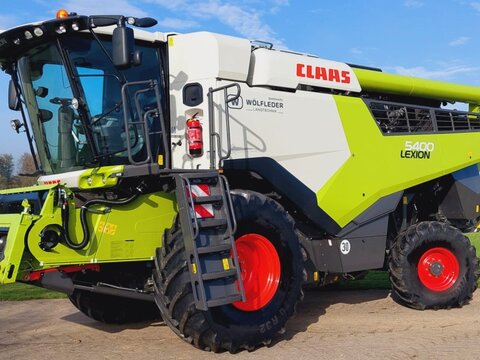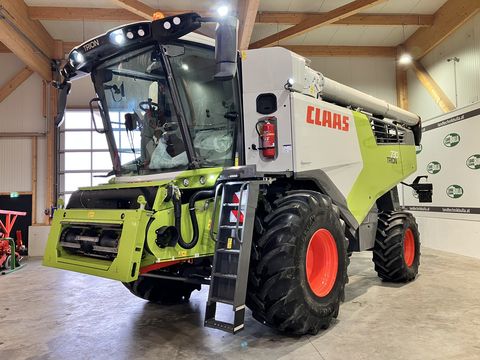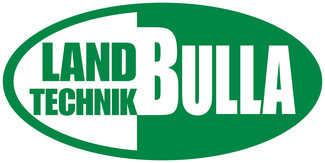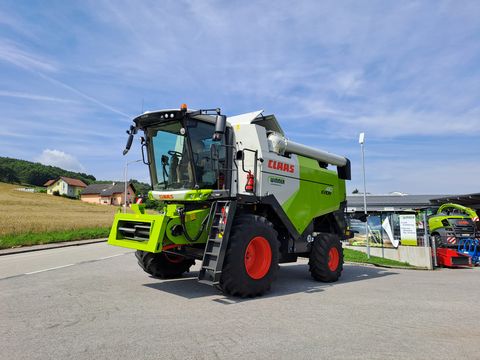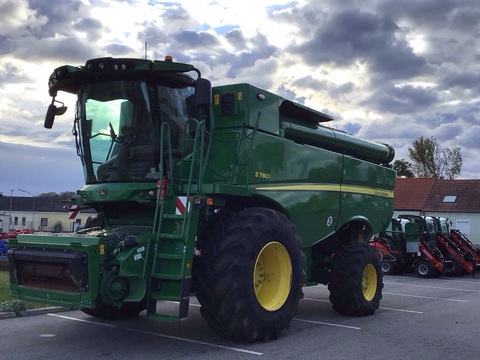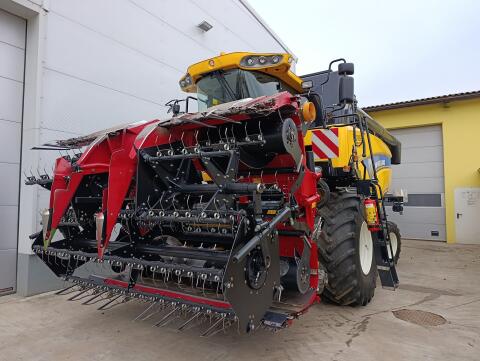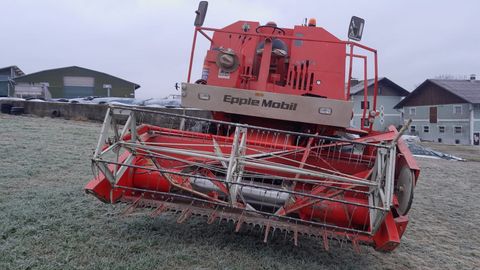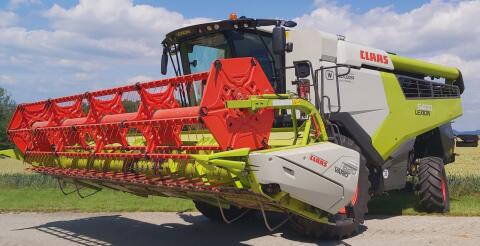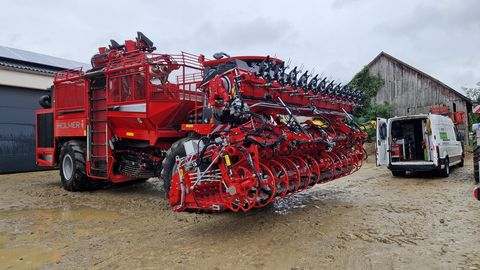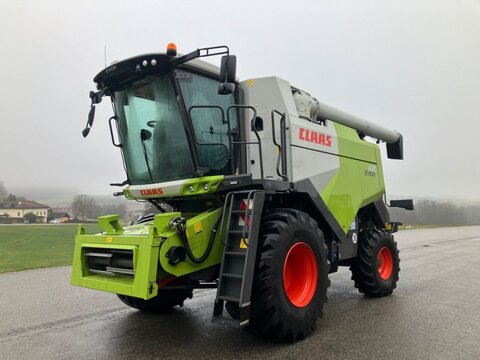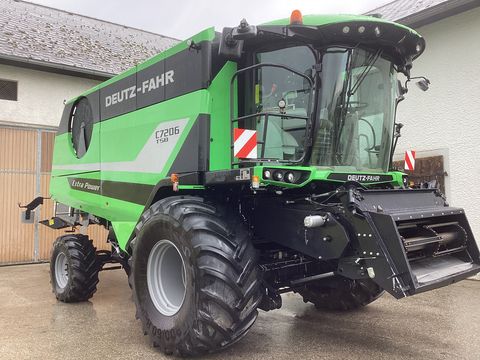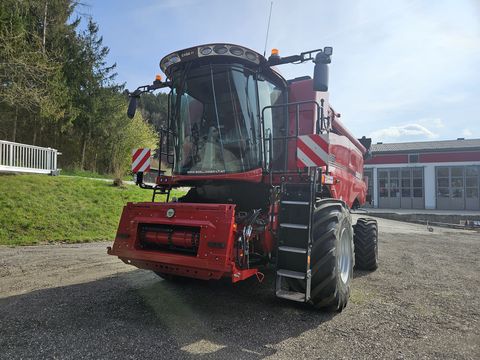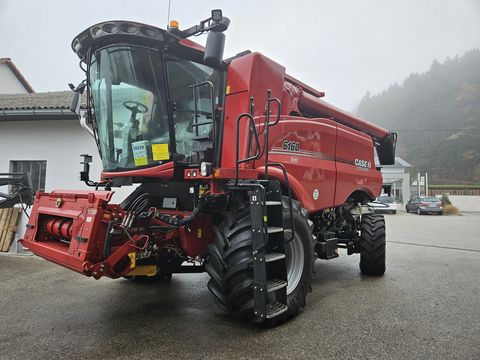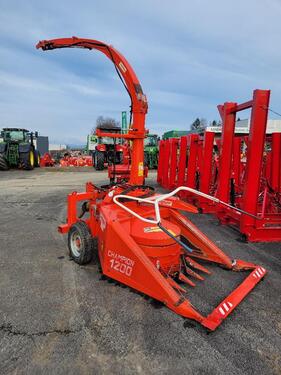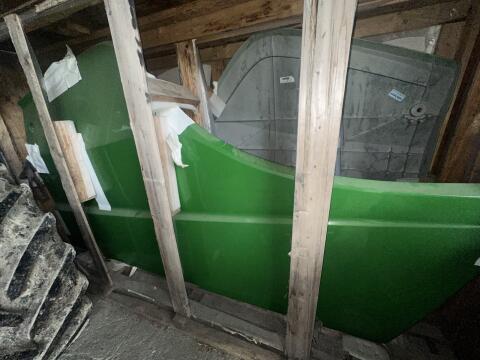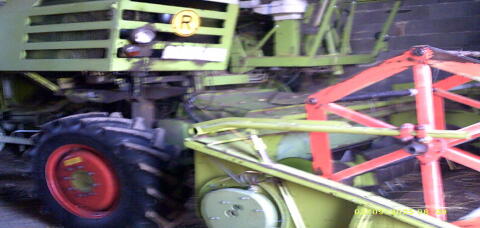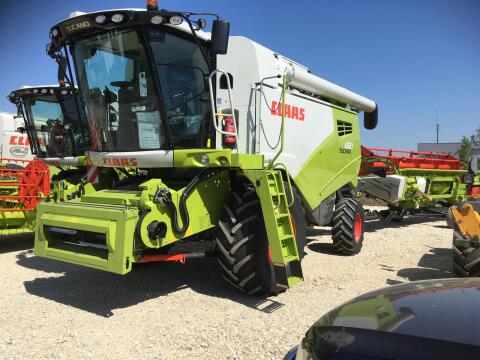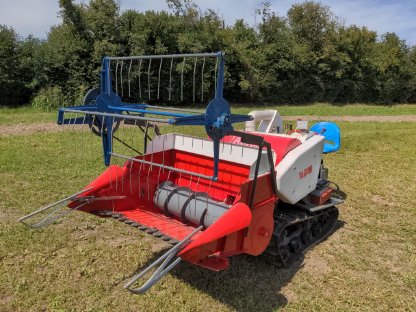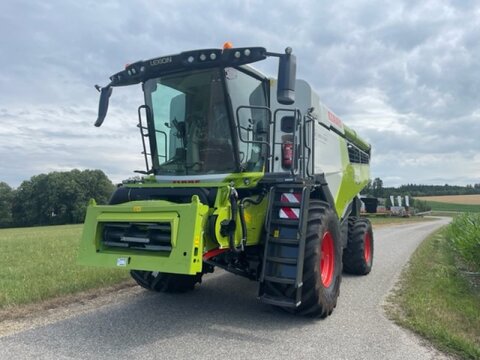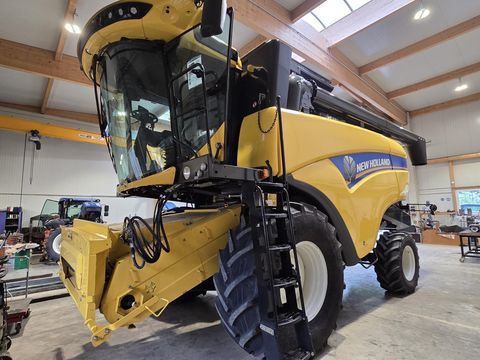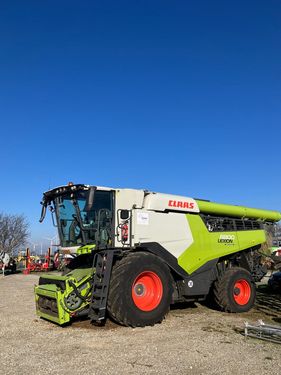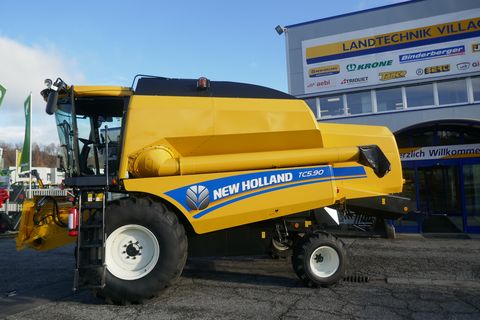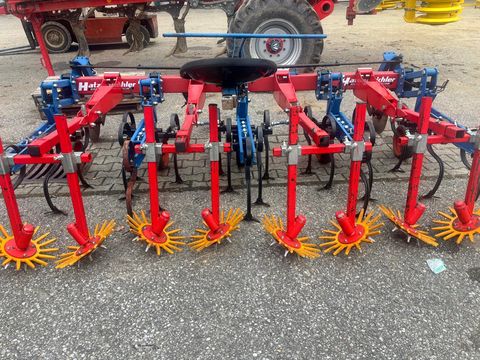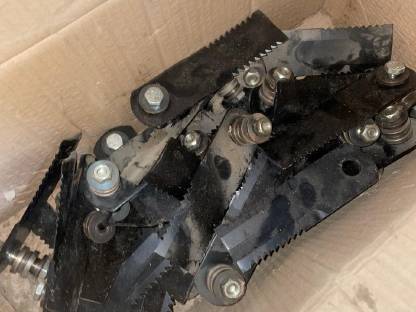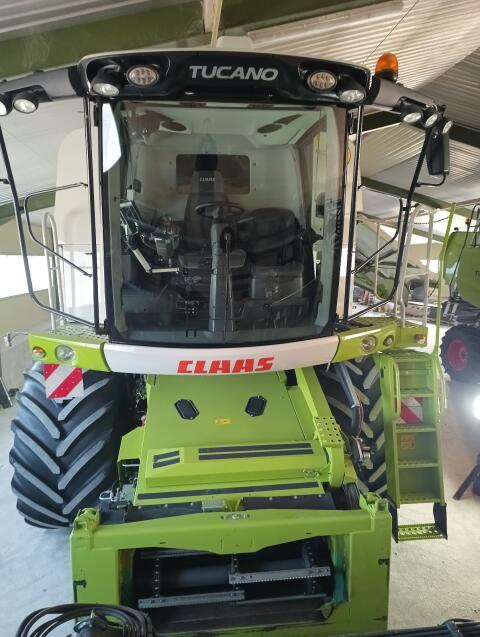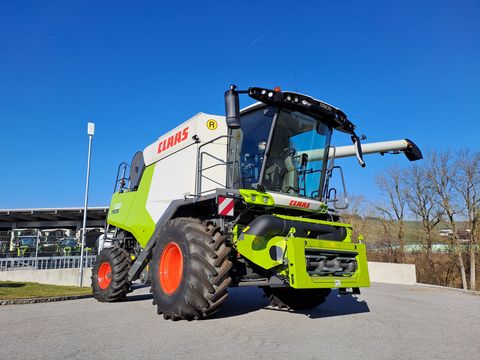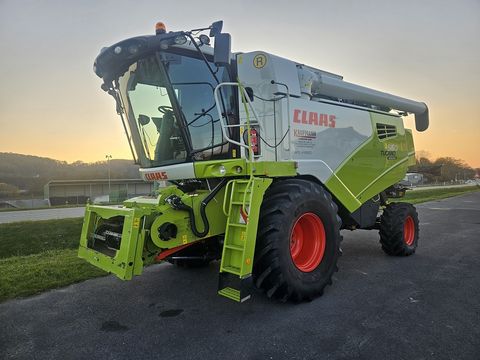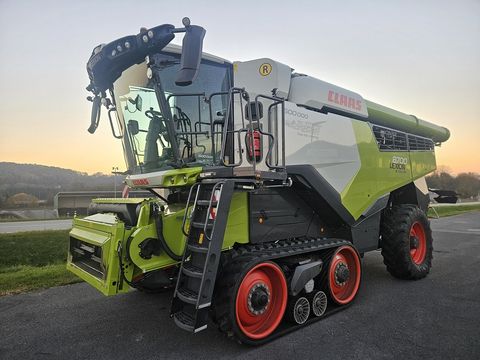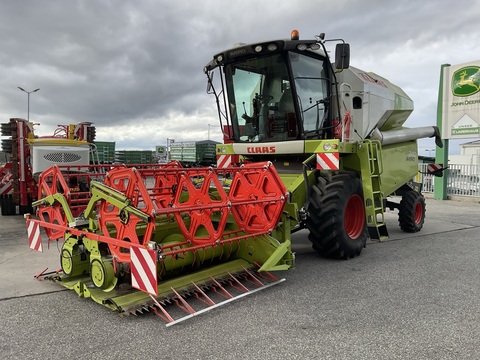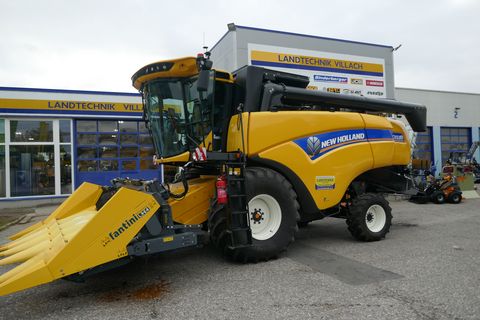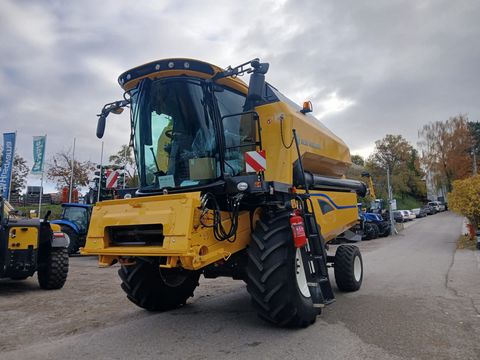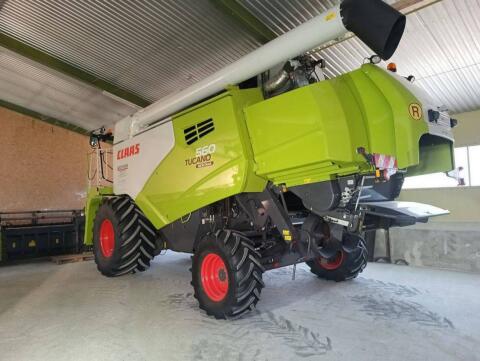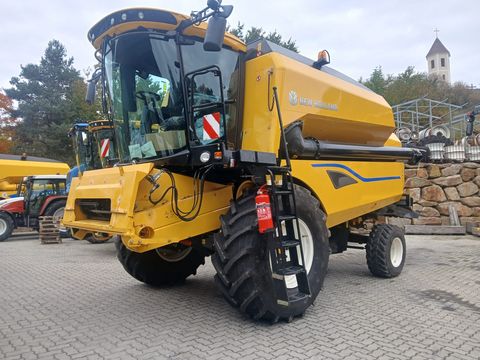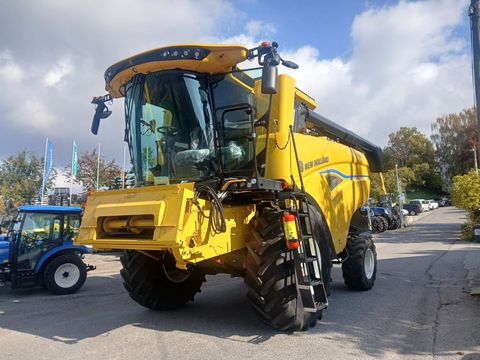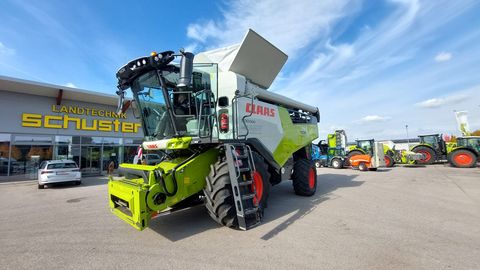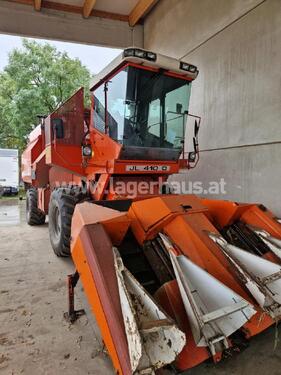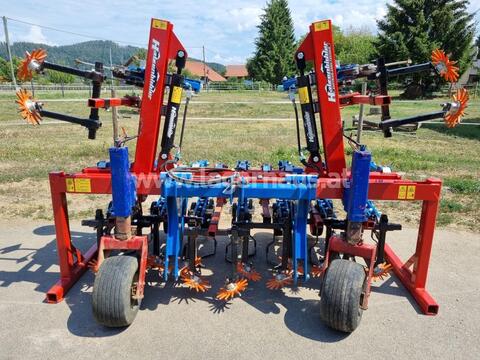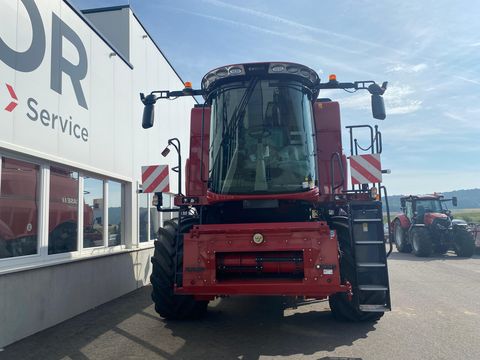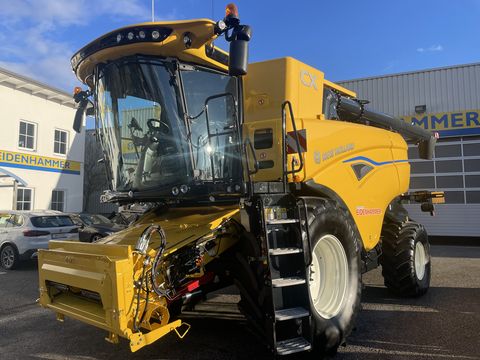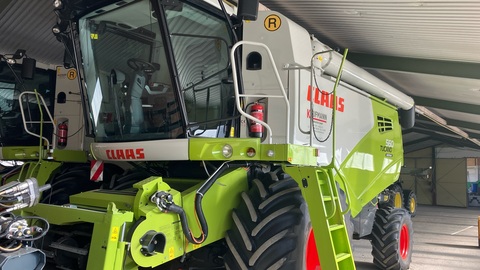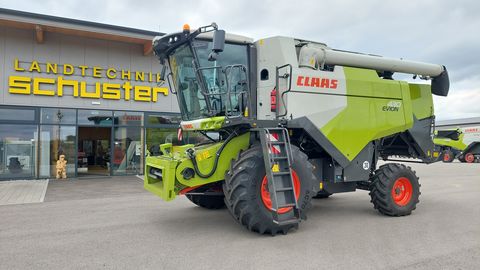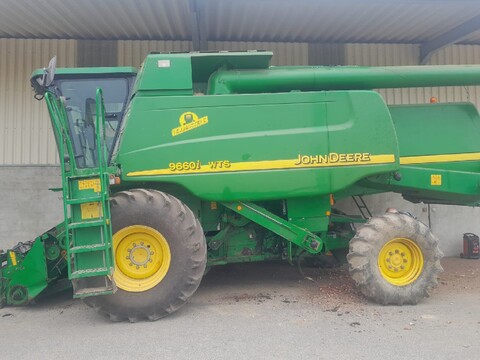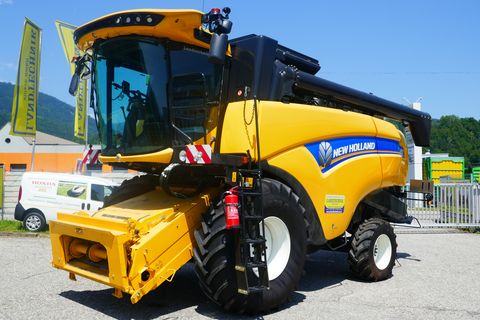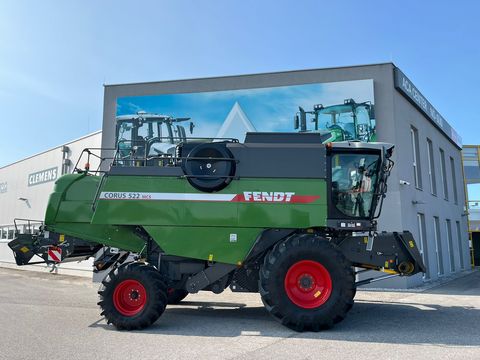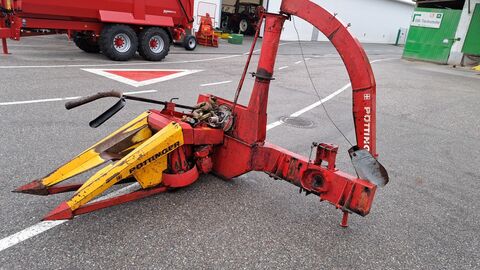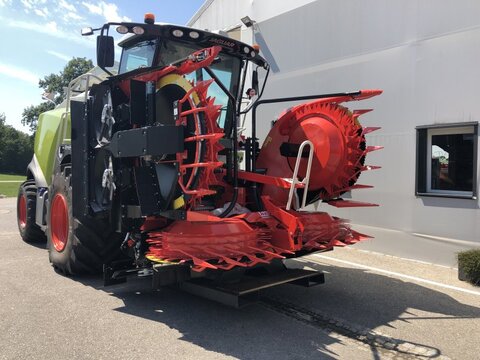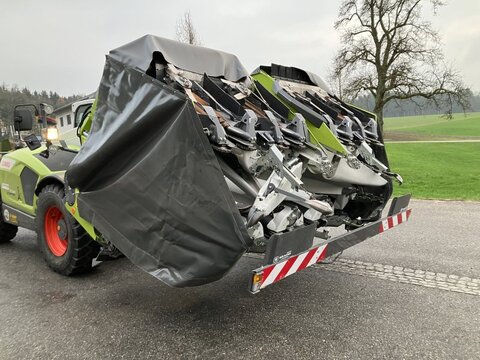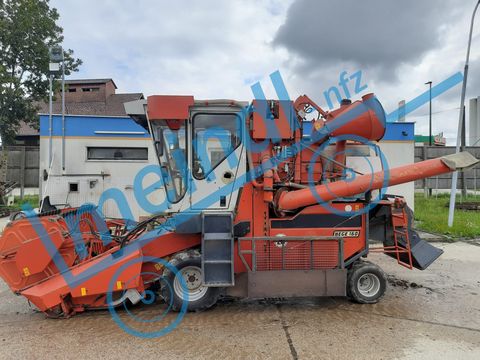There are a variety of agricultural machines that are used in agriculture for different work steps in the tillage and cultivation process. Here are the most important types:
- Combine harvesters are harvesting machines that harvest and thresh grain in a single pass. They separate the grain from the straw by cutting, threshing and cleaning the crop. Modern combine harvesters are equipped with various harvesting attachments to efficiently harvest different types of grain such as wheat, maize and barley. Combine harvesters are one of the most important machines for harvesting grain.
- Harvesting headers are attachments that are mounted on combine harvesters, forage harvesters or other harvesting machines. They are designed differently depending on the crop. For example, there are special attachments for maize, grain or rapeseed. These attachments help to adapt the machine for different crops and increase harvesting efficiency.
- Forage harvesters are mainly used to harvest silage crops such as maize. They cut the plants, chop them into small pieces and transport the chopped material into trailers. This machine plays an important role in the production of feed silage for livestock. There are self-propelled models that are specially designed for large areas.
- Pumpkin seed harvesters are specialized in harvesting pumpkin seeds. They efficiently separate the pumpkin seeds from the rest of the fruit mass. The seeds are cleaned and the rest of the pumpkin is usually left in the field as organic matter. These machines are particularly important in regions where pumpkin seeds are harvested for the production of pumpkin seed oil or as seed.
- Onion machines, carrot & beet harvesters are specialized machines that lift the vegetables out of the ground, clean them and prepare them for transport. They use clamping systems or harvesters to gently pull the vegetables out of the ground without damaging them
- Other harvesting equipment for arable farming are e.g. potato harvesters, special choppers or machines for special crops such as sunflowers. These machines are often specialized and designed for niche crops or special cultivation conditions.
Large selection of quality brands
The best-known manufacturers of arable farming equipment are John Deere, Lemken and Kverneland. Benefit from the high build quality and durability of these machines. Visit the dealer of your choice and ask for a demonstration or more information on the condition of the equipment on offer.
Tips for buying used farming equipment
When buying used farming equipment, you should pay attention to the general condition and maintenance history of the machines. Ask for details on the wear of plowshares or blades. A test drive or demonstration in the field can often provide information about the performance of the equipment. Compare several offers to find the best price-performance ratio.
Frequently asked questions on the topic of "used farming equipment":
How do I find the right farming equipment for my farm?
The choice of the right machine depends on various factors:
- Farm size: Small farms often require less large and powerful machines, while large farms prefer machines with higher efficiency and a larger working width.
- Type of soil & type of vegetable: Different soil conditions and the type of vegetable to be harvested require specific machines.
- Intensity of use: If a machine is only rarely used, a used machine that is already a few years old is sufficient. For more intensive use, it is worth considering newer used machines.
How is the price of used farming equipment determined?
The price depends on several factors:
- Age: Older machines are cheaper, but often involve higher maintenance costs.
- Condition: Wear and tear, maintenance history and maintenance condition have a significant influence on the price.
- Make and model: Well-known brands such as John Deere, Fendt or Claas are often more expensive as they stand for durability and quality.
- Functionality: Additional equipment such as GPS systems, extended hydraulics or other modern functions increase the price.
What are common problems with used farming equipment and how can I avoid them?
Most common problems include:
- Wear on shares, blades or bearings: These parts should be checked before purchase to avoid later repairs.
- Oil leaks and defective hydraulics: Check the seals and lines for leaks.
- Electronic systems: On modern machines, GPS systems, on-board computers and other electronic components should be tested.
- Hidden rust spots: Look for spots that are not immediately visible, such as frames or axles.
